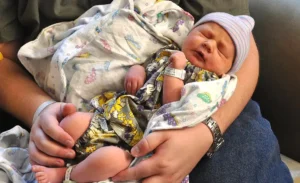When your child gets sick, you want to do what you can to help them feel better. With the winter season moving in, the incidents of colds and other infections are on the rise. One illness that your child could suffer from that may be hard to recognize is a sinus infection.
Samuel Becker, one of the leading sinus experts of New Jersey, writes that these sinus issues are not infectious, contrary to popular belief. Sinus infections, also referred to as sinusitis, happens when the lining of the nose and sinuses becomes inflamed. Believe it or not, but it’s an incredibly common affliction that can impact your child. There are two types of sinusitis: viral and bacterial.
A viral sinus infection normally accompanies a cold, but it can also be the result of allergies or hay fever. When it comes to bacterial sinusitis, this occurs as a secondary infection as bacteria get trapped in the sinuses because of allergies or a cold.
Sign and Symptoms of Sinusitis
Knowing how sinus infections can come about is only part of the problem. Just because your child has a cold or suffers from allergies, that doesn’t necessarily mean that they will get a sinus infection. In some cases, it can also be hard to tell the signs and symptoms from these ailments apart. There are differences, however. Below are the signs and symptoms to look for to determine if your child has a sinus infection.
Cold Symptoms that Last for More than 10 Days
If your child has cold symptoms, including coughing and/or nasal discharge, that lasts for 10 days or longer and they don’t seem to improve, this could be an indication that they have a sinus infection.
Thick Nasal Discharge
The discharge that comes out of your child’s nose when they have a sinus infection may be thick and yellow or greenish in color. This is not always the case, as sometimes it will be clear and frequent. However, if they do have thick, discolored discharge, it may be a good idea to take them to a professional and have it checked out.
Fever
Should your child have a sinus infection, they may also have a fever that lasts for at least 3 or 4 days in a row.
Severe Headache
One of the really good indicators that your child has a sinus infection is that they will complain of a headache around or behind their eyes. Since the sinuses are located in this area and the lining is swollen, this is where they will feel the most discomfort. If the headache gets worse when they bend over, this will give even more proof that they may be suffering from a sinus infection.
Issues Around Their Eyes
If you happen to notice that your child has swelling or dark circles around their eyes, especially in the morning, this could be another symptom that they have a sinus infection.
Bad Breath
This could be a sign that your child has a sinus infection as discharge from their nose will drain into the back of their throat. Of course, this could also be a sign that they have a throat infection or that they aren’t brushing their teeth. If you have ruled out these other options, then having them checked out by a professional to look for a sinus infection is in your child’s best interest.
Treating a Sinus Infection
If you believe that your child has a sinus infection, especially if it’s bacterial, then you will need to make an appointment with a doctor. To get rid of the issue, your child may need to take antibiotics. Depending on the type of infection, they may be required to take antibiotics anywhere from 7 to 10 days.
Once the antibiotics have been started, it should only take 2 to 3 days for the cough to improve and the nasal discharge to clear up. You’ll need to make sure you continue to give your child their antibiotics as directed. If you stop early, this could lead to a mutation of the infection and your child could become incredibly ill.
In addition to giving your child antibiotics, there are some other things you can do to relieve their sinus infection symptoms. These include the following:
Reducing Headaches or Sinus Pain
If your child is complaining of headaches or sinus pain, you might consider placing a warm washcloth over their eyes. This could reduce the swelling within the sinuses. It may also be possible to give them acetaminophen (Tylenol) or ibuprofen (Advil or Motrin) to help with the pain. These could also help reduce their fever. Talk to the doctor about appropriate dosing and how often to administer these medications.
Helping with Nasal Congestion
When your child’s sinuses are swollen and they have a lot of discharge, this could make it difficult for them to breathe. To help relieve this symptom, you might consider using saline nose drops. You can buy this product at stores without a prescription or you can make it at home. If you decide to make your own, you will add ¼ teaspoon of salt to 8 ounces of water.
It’s also possible to place a cool-mist humidifier in the room to help with their congestion. Make sure to keep the humidifier clean so that it doesn’t contribute to bacterial or mold growth.
Adding some menthol rub to their chest could also help relieve some sinus congestion and reduce their cough. It’s possible to get this product at the store without needing a prescription. They also have options designed specifically for kids that could help them breathe easier.
You might also consider asking the doctor if you can give your child a decongestant. This may help open their nasal passages so that they can breathe, as well as relieve their cough. If they agree that this could be beneficial, make sure to follow dosing recommendations and give as often as prescribed.


